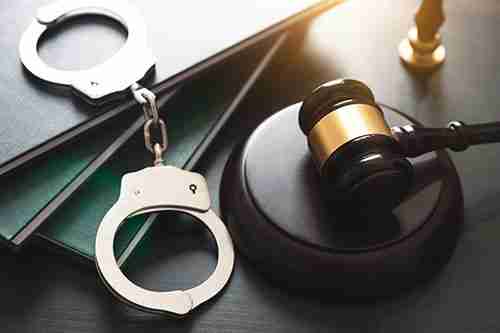When you are involved in a DUI stop, a lot runs through your mind. If it turns into an arrest, you have a million questions. Our Decatur DUI defense attorney at the SHElaw firm® wants to provide you with some information to help you know the answers should it happen to you. Here is a list of the most common DUI questions we hear from clients in Decatur and throughout Georgia
I have been drinking, but I think I’m OK. Should I drive?
Absolutely Not. If you are planning to go out drinking, ride with a designated driver that will not be drinking, or get a ride-share. It’s fun to go bar hopping with friends and call an Uber, Lyft, or Didi. You don’t have to worry about who will stay sober to drive, and there are no parking issues.
If I am driving, should I stop if I see blue lights behind me or run for it?
If you have made the huge mistake of driving after a night of drinking, the last thing you should do is try to outrun the police. A high-speed chase can easily end in a wreck and hurt you, your passengers, or even worse some poor unsuspecting souls. The punishment you receive for a DUI may seem overwhelming, but it will not compare to the repercussions and guilt you will feel if you injure or kill someone.
Do I have to blow the breathalyzer machine if the officer instructs me to do so?
No. In Georgia, drivers have the right to refuse a breathalyzer test. However, you need to know there are penalties and sacrifices for that right. Electing to refuse to blow, will cause suspension of your driver’s license for up to 1 year, and you will be mandated to attend an alcohol and drug abuse services course from an approved facility. When you are eligible to get your driver’s license reinstated, there will be a charge. This is regardless of guilt or innocence. If there is an arrest, the Georgia Implied Consent Law allows the authorities to draw blood to test for your BAC. The blood test will also reveal most drug usage, so this may not be your best option.
Do I have to do those ridiculous Field Sobriety Tests?
Although the implied consent law in Georgia applies to the breath analysis, it does not apply to the field sobriety tests. Several studies have indicated that the data collected in those tests is not always correct, or beneficial in accessing BAC. Many completely sober people have failed the tests, and many with high BACs have passed. You have the right to refuse, and there will be no repercussions.
What is a B.A.C.?
The Blood Alcohol Content refers to the percentage of ethyl alcohol in a person’s bloodstream. A BAC of.10% means that the individual’s blood supply contains one part of alcohol for every 1000 parts of blood. If you ask, “What did I blow?” The officer will give you this percentage number.
What is a D.U.A.C. vs D.U.I.?
Driving with Unlawful Alcohol Concentration is an alternative charge to Driving Under the Influence. Officers use it to charge you for a lower BAC level that does not require that the alcohol has affected your ability to drive. In Georgia, a DUAC has the same fines and penalties as a DUI. Some other states use Driving While Intoxicated (DWI), or other acronyms, and have different penalty structures than GA.
If I am drinking and driving, will they just take me in, let me see a judge, and release me on PR, so I can get to work?
If you have been cooperative, show the officer respect, have a relatively low BAC, and it is your first DUI arrest, well… No. They will still put you in handcuffs, and place you in the back of the police car like a dangerous criminal. When you arrive at the jail, you will go to booking for processing, fingerprints, mugshot, turn over your clothing, take a forced shower, put on an inmate uniform, etc. Once complete, they put you in a jail cell. The DUI law in Georgia requires that all DUI arrests result in imprisonment of 24 hours minimum. At some point during this time frame, you will go to court. A judge will make the initial ruling in your case. He will determine your release time and the bail that you must pay.
What is the difference between bail, bond, probation, and parole?
Bail is the amount that you must make arrangements for or pay before the individual leaves jail. It is the penalty for the crime committed, set by the judge at the initial bail hearing.
Bond is the amount paid to gain release. This may be the bail in full or a percentage of the total amount. There will also be court costs, administrative fees, fines, and other add-on costs.
Personal Recognizance – A PR bond means that the defendant is not required to pay any money to get released from jail. The judge believes that the individual will appear for all court appearances.
Cash – If the bail is an amount you can pay yourself, and/or have someone that can get the money to pay for you, they can post your bail. It must be in cash or money order. Checks, debit, or credit cards are not accepted.
Bail Bondsman – In the case of an expensive bail that may need more than one individual paying, a bail agent may be the answer. A bail bondsman is an entity that pays the down payment toward the total bail amount. The individual must repay the bondsman the down payment amount plus 10-20%. Collateral may be required to cover the entire amount owed. Should the defendant not show up for the trial date, the bail bondsman owes the court the full bail amount. The no-show defendant owes the bail bondsman the bail plus a 10-20% agreed-upon finance charge on the entire bail amount. The bail bondsman also gains custody of the collateral.
Probation is the period of punishment a defendant is sentenced to instead of incarceration. If the sentence is for six months, suspended, you will spend six months on probation. You will be assigned a probation officer for monitoring.
and will only have to serve actual jail time if the terms of probation are violated.
Parole is the period that a defendant is allowed to serve on early release. If the sentence is for six months, three months may be in jail and the last three months on parole. You are required to follow the parole rules or return to jail.
Contact SHElaw firm® Today if You are Facing a DUI in Decatur, GA
If all of this confuses you, you are not alone. There are many intricacies to the DUI laws in Georgia. Contact SHElaw firm® and let our experienced Decatur DUI lawyer work for you. We can help get you out on bail, get your bond reduced, save your driving privileges, and even get your charge reduced or dismissed. Call us at 470-788-8930 to discuss how we can help you.









